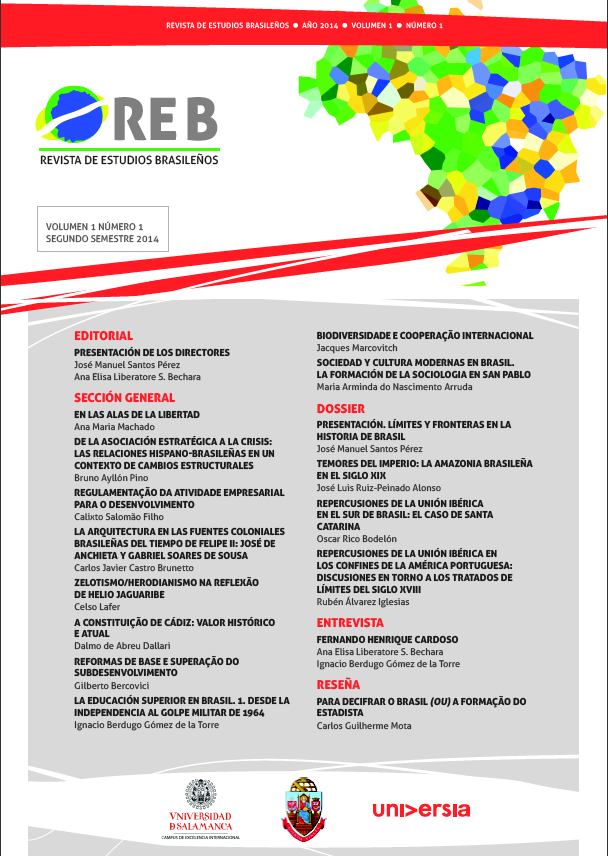The Cádiz Constitution: historical and contemporary value
DOI:
https://doi.org/10.3232/REB.2014.V1.N1.06Keywords:
Spanish Constitution of Cadiz (1812), transition, constitutionalism, fundamental rights and «people rights»Abstract
The Spanish Constitution of Cadiz (1812) is an important document, not only for its great relevance to the history of Spain, but also because it is the testimony of a moment of transition, when new achievements, in terms of fundamental rights of the human person and peoples’ rights were enshrined in a legislative assembly which, while they asserted the independence and sovereignty of the state, laid down the rules for the legitimacy of the government, its organization and its limitations, enshrined a set of rights that neither the Law nor governments could reproach. It was an advancement of constitutionalism and had influenced other people, especially the old Spanish colonial territories. The Spanish Constitution of 1812 was extraordinarily important for its time and exerted influence on many constitutions made thereafter.Downloads
Download data is not yet available.
Downloads
Issue
Section
General Section
How to Cite
The Cádiz Constitution: historical and contemporary value. (2014). Revista De Estudios Brasileños, 1(1). https://doi.org/10.3232/REB.2014.V1.N1.06


